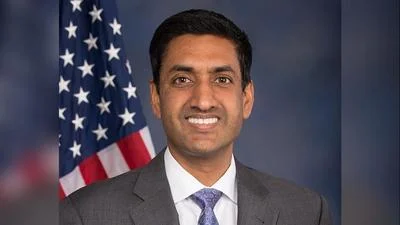John Taylor, Professor of Economics at Stanford University and developer of the "Taylor Rule" for setting interest rates | Stanford University
John Taylor, Professor of Economics at Stanford University and developer of the "Taylor Rule" for setting interest rates | Stanford University
The symposium at Stanford Medicine’s Center for Digital Health on October 29 focused on the role of digital health in transforming future healthcare. Discussions revolved around the integration of AI and emerging technologies into healthcare, with a particular emphasis on equity and trust.
Eleni Linos, MD, DrPH, director of the center, highlighted that digital health is about "redefining how we approach health care in the future." Lloyd Minor, MD, dean of the School of Medicine at Stanford University, emphasized that "emerging technologies such as generative AI promise to transform patient care," but it is crucial to implement these changes equitably and safely.
David Entwistle, president and CEO of Stanford Health Care, pointed out the strategic advantage provided by Stanford's proximity to Silicon Valley. He stated that it is important to apply new technologies thoughtfully so they have a meaningful impact on patients and clinicians.
Curt Langlotz, PhD, professor at Stanford University, spoke about the need for transparency in AI data training. He mentioned that potential AI users often lack information about whether products will work effectively in their practice settings.
Nigam Shah, MBBS, PhD, cautioned against getting caught up in technological hype without considering its practical application in medicine. Dana Cho from Pinterest stressed using storytelling to build trust and understanding among diverse audiences.
Maya Adam raised concerns about how new technologies might widen the digital divide globally. Panelists suggested redesigning technologies to fit specific cultural and resource contexts rather than pulling back innovation.
Michelle Williams from Harvard University noted that public health innovations often do not focus on populations most in need. She advocated for centering innovation efforts on those who would benefit most.
Fei-Fei Li recounted her collaboration with Jonathan Levin on creating an interdisciplinary AI center at Stanford aimed at integrating diverse expertise into technology development. Li underscored academia's role in promoting public good through AI advancements.
Jessica Mega emphasized that technological change requires interdisciplinary collaboration for effective integration into healthcare systems.
###




 Alerts Sign-up
Alerts Sign-up